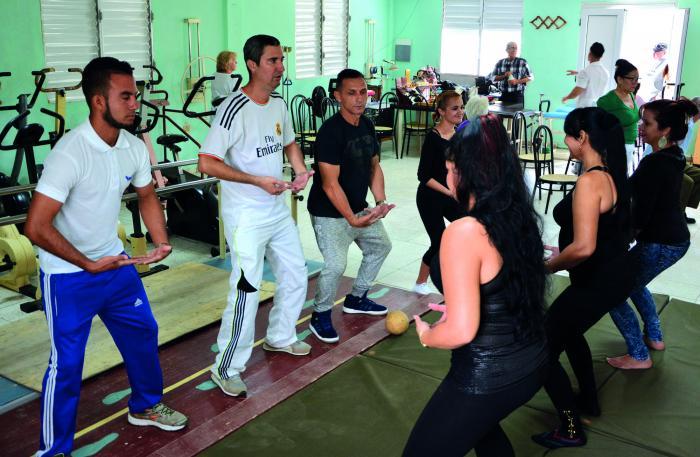
A Phase III clinical trial to evaluate the efficacy and safety of the nasal administration of NeuroEPO in adult patients with spinocerebellar ataxias is being successfully carried out in different provinces of the country by medical institutions and scientific centers affiliated to the BioCubaFarma group.
Cuba is the country in the world with the highest prevalence of Ataxia type sca2, at a rate of 36.2 cases per 100,000 inhabitants, although its frequency in the province of Holguin is 183 cases per 100,000 individuals. Internationally, the incidence of this type of ataxia is three to five cases per 100,000 people.
Doctor of Science Luis Velázquez Pérez, a Second Degree specialist in Neurophysiology and Neurology, founder of the Center for Research and Rehabilitation of Hereditary Ataxias (Cirah) in Holguín, and president of the Cuban Academy of Sciences, reported that this Phase III trial follows a Phase I/II one conducted between 2015 and 2016.
As he explained, the results of that study showed an improvement of cerebellar syndrome among treated patients and an improvement of cognitive manifestations in them, in addition to the fact that a high safety profile of NeuroEPO, a molecule developed by the Center for Molecular Immunology, and which is being applied to different neurodegenerative diseases, was proven.
One year after the start of that trial," added the scientist, "the patients who received NeuroEPO showed a stabilization of the disease, while those who received placebo showed a worsening in correspondence with the natural history of the disease".
NeuroEPO in SCA2 ataxia
From preclinical studies to clinical trials in humans, was the presentation that focused this week's meeting between scientists and experts on health issues, with the First Secretary of the Central Committee of the Party and President of the Republic, Miguel Díaz-Canel Bermúdez, and the member of the Political Bureau and Prime Minister, Manuel Marrero Cruz.
During the usual exchange with representatives of the country's medical and scientific community, held on Tuesday, Díaz-Canel sent congratulations to the workers of the Institute of Neurology and Neurosurgery, on the new anniversary of the Neurology Hospital, founded on January 29, 1962.
With the participation of Deputy Prime Ministers Inés María Chapman Waugh and Jorge Luis Perdomo Di-Lella, and moderated by the Minister of Health, Dr. José Angel Portal Miranda, the exchange was informed that the Phase III clinical trial of NeuroEPO in adult patients with spinocerebellar ataxias, which is placebo-controlled, randomized and double-blind, has the general objective of evaluating the efficacy and safety of the product in these patients.
According to Dr. Velázquez Pérez, ataxia means loss of coordination of movements and defines neurodegenerative diseases in which ataxia is the main clinical sign.
Regarding the SCA2 type, he explained that it is a severe multisystemic hereditary disease, with a progressive course until death, and whose age of onset is around 30 years old, and has a clinical course to disability in ten years.
In Cuba, 75 new subjects with the mutation are diagnosed each year, and 25 patients die. In the country, 2 400 persons with the disease are reported, and 10 000 asymptomatic relatives, belonging to 200 families.
Regarding the clinical manifestations, the specialist described, among others, the so-called ataxic gait in 100% of the patients, as well as language disorders. Meanwhile, slowing of saccadic eye movements affects 91 %, muscle atrophy 75 %, peripheral neuropathy 85 %, swallowing abnormalities 76 %, sleep disturbances 90 %, and cognitive dysfunction 85 % of patients.
In spite of a group of barriers that limit the therapies for ataxias, a disease that does not have a definitive cure for the moment, Cuba is determined to develop them and make them available free of charge and universally for all Cubans who suffer from it or have genetic risks of being affected.
The objective is to stimulate the cellular and molecular mechanisms of neuroplasticity, improve the damaged motor and cognitive functions, slow down the progression of the disease, increase the independence of the patients and thus improve the quality of life of all those who suffer from it, and also to collaborate with the world.
Together with NeuroEPO and other experiences, the comprehensive and intensive rehabilitation of these patients in our country has allowed a significant improvement in cerebellar motor symptoms, gait speed, posture and coordination.















